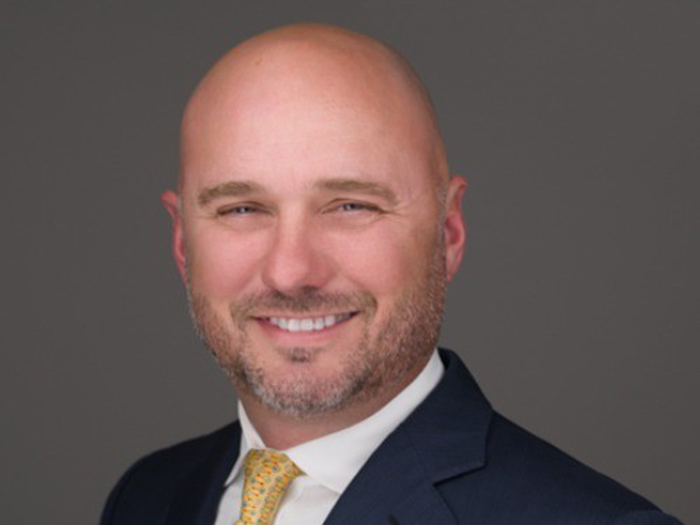Sponsored: Aspen Insurance
U.S. Healthcare: New Frontiers

The Affordable Care Act (ACA) was enacted in 2010 with many of the measures implemented in 2013 against a background of declining supply of primary care physicians coupled with an increasing demand for services that they provide. The Act proved to be a catalyst in the changing medical landscape and a couple of key trends have emerged regarding healthcare delivery in the United States.
Non Physicians
In 2013, more than 20 states passed regulation to allow non-physicians to open independent offices and disburse medical care and prescriptions. State regulation has enabled professionals, including certified nurse practitioners and physician assistants, to open independent practices to provide health services including monitoring of diabetes, blood pressure, and cholesterol, in addition to administering testing, bloodwork and vaccines. In these cases, the medical professionals are no longer required to collaborate with a licensed medical doctor to administer defined types of medical care.
Nurse Practitioners (NP), specifically, are gaining recognition and the ability to practice independently by setting up their own practices. Currently, 22 states and the District of Columbia have approved full practice status for NPs allowing them to assess, diagnose, interpret diagnostic tests and prescribe medications independently.1 Several states have also empowered NPs to sign death certificates and formal health records and prescribe certain medications.
The dismantling of practice barriers has received encouragement from other Government departments. For example, in 2016, The Department of Veterans Affairs (VA) announced the amendment of provider regulations with a relaxation of full practice authority limitations for VA advanced practice registered nurses.
Outpatients
Another trend has been a rapid increase in outpatient medical services formerly consigned to in-patient/hospital settings including urgent care facilities that offer quick, more cost-effective, local medical services for urgent care needs. This growth has been encouraged by the rollout of ACA and advances in preventative treatment, resulting in shorter recovery times and reduced complications in addition to advanced technology and cost containment. The rising cost of inpatient care has also led to the expansion of outpatient care. Complex procedures and surgeries are now possible in outpatient facilities due to new medical technologies and anesthesia and pain control techniques that reduce complications and allow patients to return home more quickly. For many, outpatient surgery has proven to be safe and effective, achieving similar or better outcomes than inpatient procedures while allowing patients to spend less time in a medical facility and recover more quickly.
It is estimated that about two-thirds of all surgeries are now performed on an outpatient basis.2 Healthcare providers have been setting up free-standing emergency departments as well as partnering with supermarkets and drugstores to offer urgent care.
New Frontiers

Faith-Logsdon, Senior Vice President, Medical Professional Liability, Aspen U.S. Insurance
The new frontiers of outpatient care, created by the growth of non-physicians independent practices, bring new challenges to the insurer. Policies that combine the appropriate mix of professional liability, general liability and privacy and network security (cyber liability) have become increasingly relevant.
A multi-disciplinary approach will ensure the client gets the relevant comprehensive coverage needed for the exposure. It is imperative that the underwriter is aware of existing and changing legislation that varies from state to state as this sets the rules of engagement. The underwriter check-list must include assurance of an on-site Health Insurance Portability and Accountability Act (HIPAA) Compliance Officer as HIPAA requires healthcare organizations to implement secure electronic access to health data and to remain compliant with privacy regulations. Particular consideration needs to be given to evaluating the size of the account in terms of not just number of lives/records but also patient load to ensure that the compliance systems requirements related to exposures can be met.
Compliance considerations should include legal compliance of the practice with a check on reciprocity agreements between states where the practice transacts business as well as practice restrictions applicable to non-physician healthcare professionals. Informed consent is an essential component to any medical practice. Not only is it a recommended best practice, it is actually a requirement in many states.
While outpatient care may have reduced the risk of superbugs and overuse of antibiotics, it has introduced a correspondingly larger exposure to med-tech. (Re)insurers must continue to identify trends and developing regulations in order to evaluate these exposures responsibly and deliver a seamless coverage product to the market.
For more information or to view this article online, visit aspen-insurance.com.
This article is provided for informational purposes only, does not necessarily represent Aspen’s views, and reflects the opinion of the authors in light of market, regulatory and other conditions which may change over time. Aspen does not undertake a duty to update the article.
1 Alaska, Arizona, Colorado, Connecticut, Hawaii, Idaho, Iowa, Maine, Maryland, Minnesota, Montana, Nebraska, Nevada, New Hampshire, New Mexico, North Dakota, Oregon, Rhode Island, South Dakota, Vermont, Washington, Wyoming https://www.aanp.org/legislation-regulation/state-legislation/state-practice-environment/66-legislation-regulation/state-practice-environment/1380-state-practice-by-type#north-dakota (Accessed 3 October 2017)
2 The Changing Geography of Outpatient Procedures, Guy David PHD & Mark D. Neuman MD, Issue Brief March 2011v.12/5
This article was produced by the R&I Brand Studio, a unit of the advertising department of Risk & Insurance, in collaboration with Aspen Insurance. The editorial staff of Risk & Insurance had no role in its preparation.










